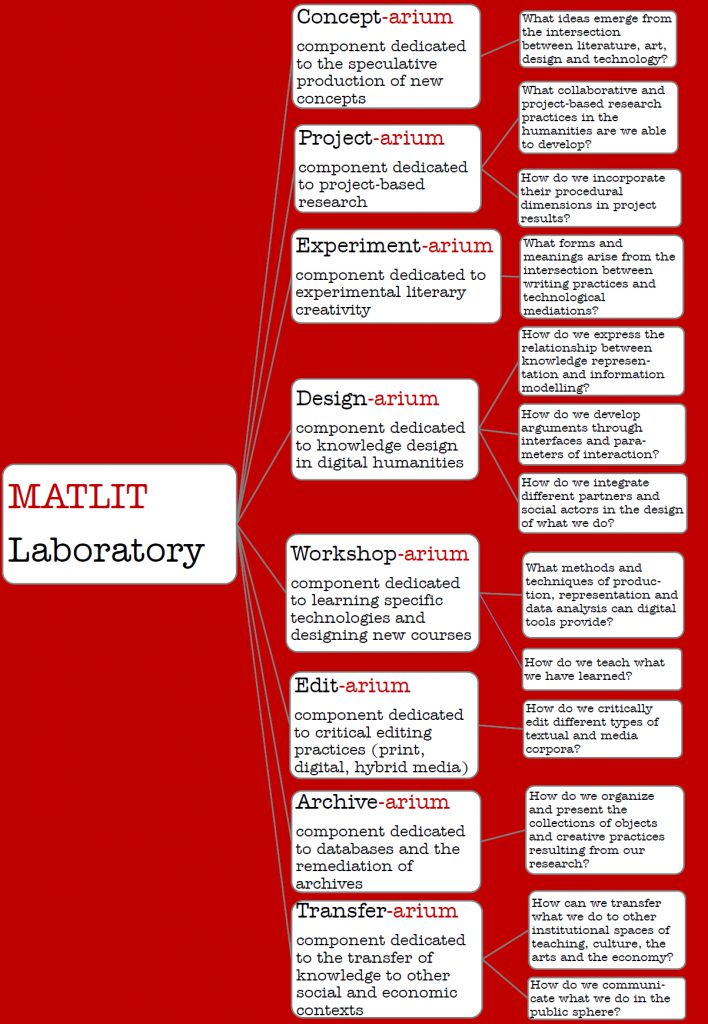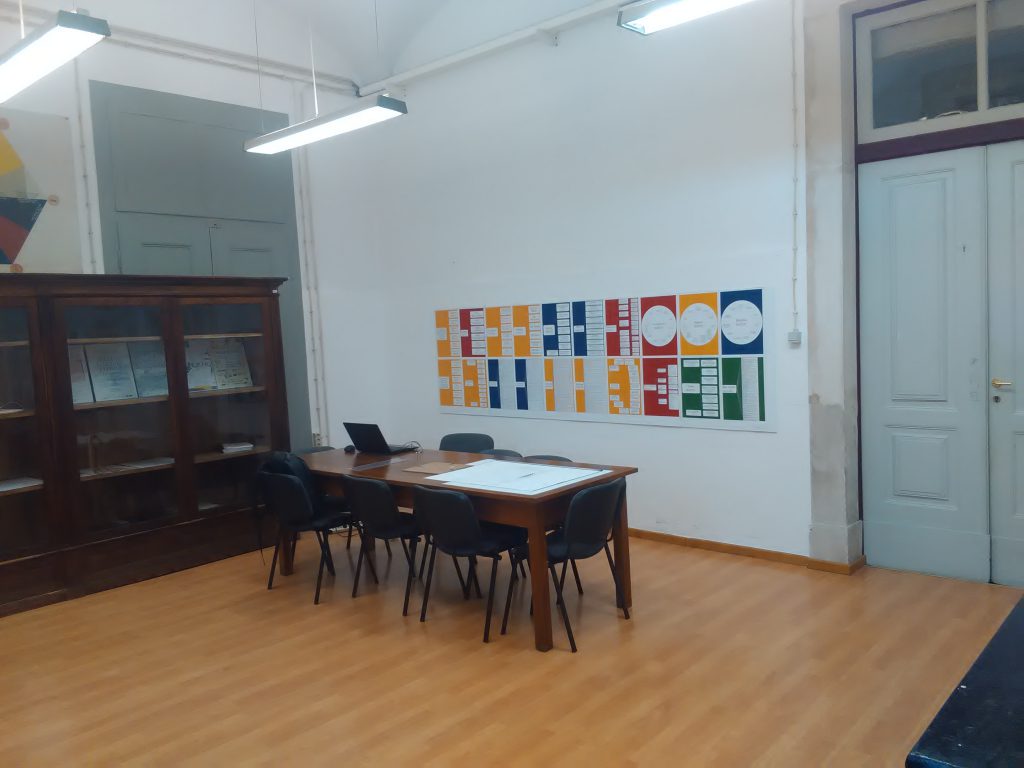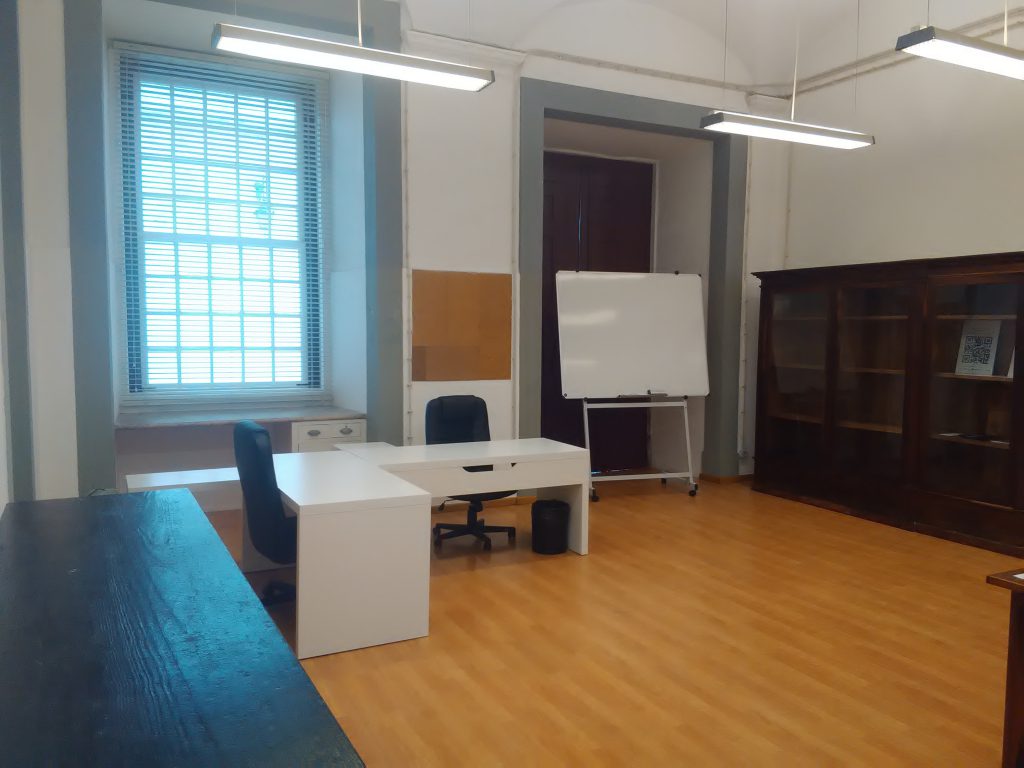About
MATLIT LAB: Humanities Laboratory was established by the Doctoral Programme in Materialities of Literature in March 2019. Its main objectives are to develop applied humanistic knowledge and conduct research based on literary and artistic experimentation. By applied humanistic knowledge we mean the practices of transferring knowledge to multiple institutional contexts, public or private. These practices include, for example, curatorship, the production of digital editions and the development of teaching contents based on new research. By research based on literary and artistic experimentation we mean the conceptualization and production of imaginative artefacts that originate in the retroaction between research and aesthetic creativity. Our aim is to put into practice a critical literacy that is appropriate both to an expanded notion of literature and to the processes of reading and writing in a post-digital society. In addition to being a speculative space for invention, attentive to the material and social ecology of communication, the activity of the MATLIT LAB also translates into seminars, accredited training courses, workshops, exhibitions and other initiatives to disseminate knowledge in the public space.

MATLIT LAB wants to be an open space for collaboration, theoretical speculation and technical and literary experimentation, whether within the scope of doctoral and post-doctoral projects, or within other research projects. The laboratory and workshop, understood as places for the design and production of artefacts, expand humanistic training beyond the seminar room and the library. The use of digital research methodologies and tools in the laboratory will provide conditions for: (a) carrying out practical work and workshops on specific technologies, either as complementary work to curricular seminars or through dedicated intensive courses; (b) development of technical skills in the field of digital editing, testing new ways to annotate and publish texts for use in different contexts; (c) expanding the space for learning about the processes and methods of producing a scientific publication, taking advantage our own journal, MATLIT: Materialities of Literature; (d) creation of databases resulting from archival research of numerous dispersed materials, collected and systematized as part of PhD thesis projects (artist’s books in Portugal; electrography in Portugal; recordings of poetry on disk; etc.); (e) experimental creation of literary objects in different genres that incorporate the conceptual and technical research practiced in the Programme.
As it is currently conceptualized, the Materialities of Literature Laboratory can be divided into eight components: (1) Concept-arium, a component dedicated to the speculative production of new concepts: What ideas emerge from the intersection between literature, art, design and technology? (2) Project-arium, a component dedicated to project-based research: What collaborative and project-based research practices in the humanities are we able to develop? How do we incorporate their procedural dimensions in project results? (3) Experiment-arium, a component dedicated to experimental literary creativity: What forms and meanings arise from the intersection between writing practices and technological mediations? (4) Design-arium, component dedicated to knowledge design in digital humanities: How do we express the relationship between knowledge representation and information modelling? How do we develop arguments through interfaces and parameters of interaction? How do we integrate different partners and social actors in the design of what we do? (5) Workshop-arium, component dedicated to learning specific technologies and designing new courses: What methods and techniques of production, representation and data analysis can digital tools provide? How do we teach what we have learned? (6) Edit-arium, component dedicated to critical editing practices (print, digital, hybrid media): How do we critically edit different types of textual and media corpora? (7) Archive-arium, a component dedicated to databases and the remediation of archives: How do we organize, represent and present the collections of objects and creative practices resulting from our research? (8) Transfer-arium, a component dedicated to the transfer of knowledge to other social and economic contexts: How can we transfer what we do to other institutional spaces of teaching, culture, the arts and the economy? How do we communicate what we do in the public sphere?
MATLIT LAB continues the programme set out in 2009 for the PhD in Materialities of Literature: “It is our ultimate goal to contribute to a change in ways of researching and teaching literature, within the broader project of rethinking the Humanities in the age of software and digital media.”
24 February 2019
Manuel Portela


